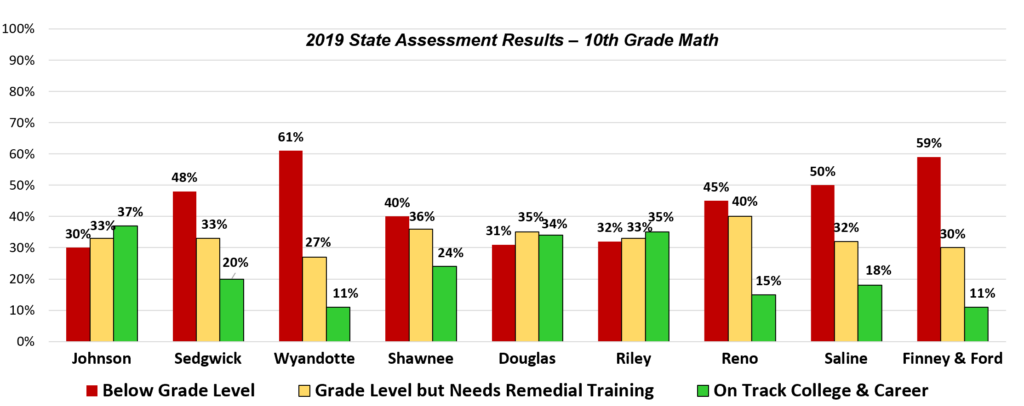Kansas business owners believe the state’s COVID response damaged the economy more than necessary, according to an annual poll commissioned by the Kansas Chamber.
“It is no secret the shutdown and other restrictions by state and local governments hurt certain businesses as well as our state’s economy tremendously,” said Chamber President and CEO Alan Cobb. “Our poll found the operations of nearly every business has been directly impacted.”
Respondents reported supply chain issues and damaging impacts of the state’s COVID response as areas of top concern in the Chamber’s 16th annual poll of business leaders. The poll, conducted by Cole Hargrave Snodgrass & Associates, surveyed 300 business leaders of various size companies throughout the state. It revealed that high taxes and government regulations remain challenges to the economic health of their businesses.
Business leaders cite tax rates as a top concern
“Fifty-two percent of business leaders polled cited lower taxes on business as most important to profitability,” said Pat McFerron, President of Cole Hargrave Snodgrass & Associates.
Of those polled, 77% believe the state should cut taxes rather than raise them, and 63% said lowering taxes would help the Kansas economy. Specifically, 77% of respondents said Kansas should trim its budget by up to 5% before considering any tax increase.
Though negative impacts from the state’s COVID-19 response might darken the state’s economic outlook, a majority of business leaders said they are optimistic about hiring this year. Nearly 30% of those surveyed said they plan to increase the size of their workforce in the near future. Only 5% said they intend to decrease the size of their workforce.
“Still, there continues to be apprehensions about the quality of the workforce,” McFerron said. “Fifty-seven percent are concerned about finding employees with soft skills, while 25% worry about identifying employees with technical skills their companies need.”
While favoring tax cuts, a majority of business owners — 75% — said more funding should go to classrooms. However, those surveyed also said student achievement is more important than funding. Of those polled, 60% said the state should focus on student performance rather than adding funding for schools.
The most recent student achievement results bear out employers’ concerns.
The 2019 state assessment shows there are more 10th-graders below grade level in Math and English Language Arts than are on track for college and career. Even Johnson County schools, often touted by the districts as the best in Kansas, have 30% of their 10th-graders below grade level in Math; a third are at grade level but still need remedial training, and only 37% are on track.

The 2020 ACT results are equally concerning, with only 23% of Kansas high school graduates being college-ready in English, Reading, Math, and Science.
State’s economic outlook at risk
Cobb said the Chamber conducts the annual poll so state leaders have a clear understanding of the challenges Kansas businesses face.
“It is our hope the governor and state lawmakers keep these poll findings in mind as they consider the many important decisions they make during the 2021 legislative session,” Cobb said.
He lauded Kansas businesses for working to repurpose their facilities to manufacture personal protective equipment and sanitizer at the outset of the pandemic, and then establishing safe workplaces once some of the COVID-related restrictions lifted. However, there’s work to do.
According to the American Legislative Exchange Council’s Rich States Poor, States, Kansas’s overall economic outlook ranks 25th among the states, but the state is ranked #41 for current economic performance. The Sunflower State ranks behind neighboring states in economic performance and residents are voting with their feet to go elsewhere; between 2009 and 2018, the state had a net domestic migration loss of almost 93,000 Kansans migrating to other states. Kansas also has the slowest job growth compared to neighboring states.
“Unless Governor Laura Kelly and the Kansas Legislature take the necessary steps to remove barriers to growth and improve our state’s business climate, our overall economic outlook will remain at risk,” Cobb said.

